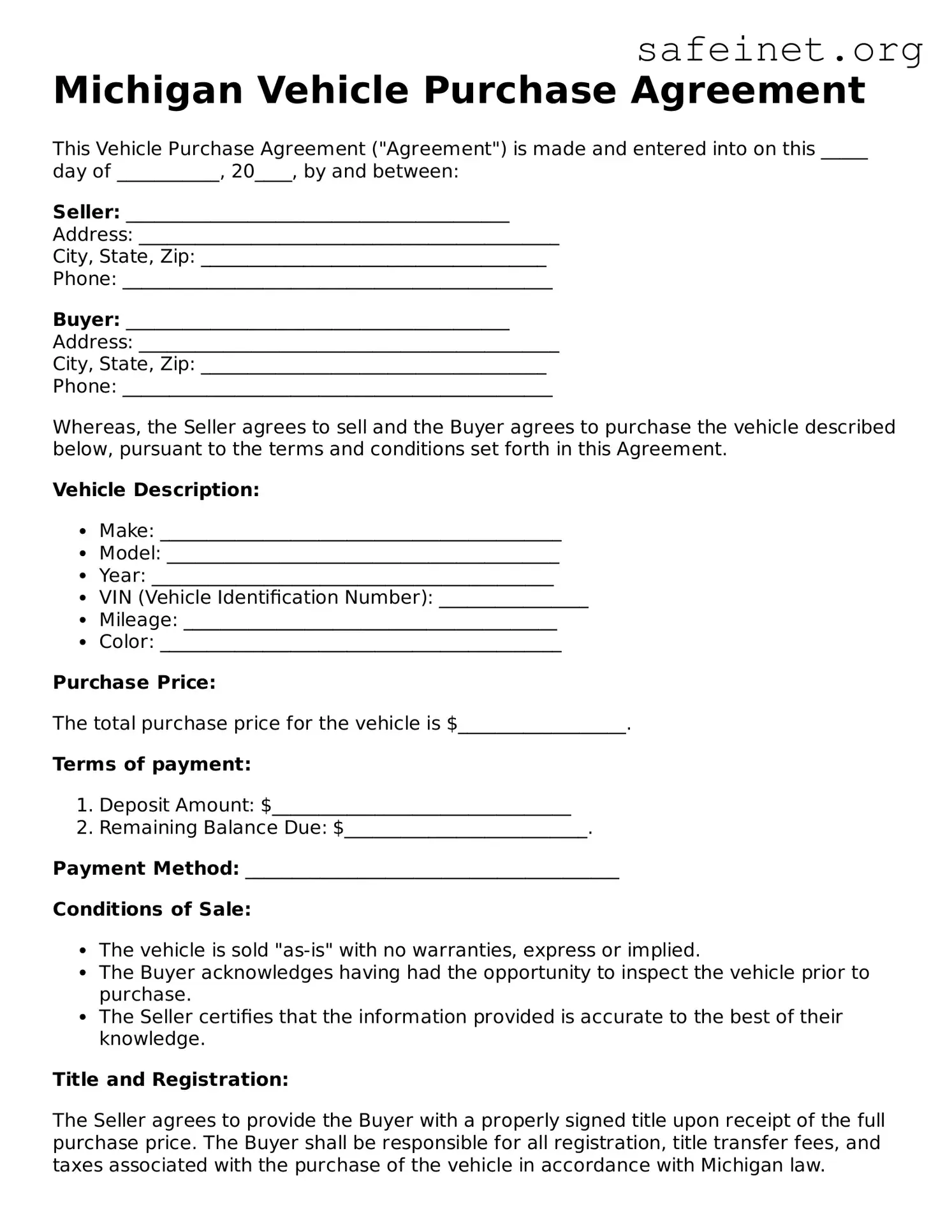Michigan Vehicle Purchase Agreement
This Vehicle Purchase Agreement ("Agreement") is made and entered into on this _____ day of ___________, 20____, by and between:
Seller: _________________________________________
Address: _____________________________________________
City, State, Zip: _____________________________________
Phone: ______________________________________________
Buyer: _________________________________________
Address: _____________________________________________
City, State, Zip: _____________________________________
Phone: ______________________________________________
Whereas, the Seller agrees to sell and the Buyer agrees to purchase the vehicle described below, pursuant to the terms and conditions set forth in this Agreement.
Vehicle Description:
- Make: ___________________________________________
- Model: __________________________________________
- Year: ___________________________________________
- VIN (Vehicle Identification Number): ________________
- Mileage: ________________________________________
- Color: ___________________________________________
Purchase Price:
The total purchase price for the vehicle is $__________________.
Terms of payment:
- Deposit Amount: $________________________________
- Remaining Balance Due: $__________________________.
Payment Method: ________________________________________
Conditions of Sale:
- The vehicle is sold "as-is" with no warranties, express or implied.
- The Buyer acknowledges having had the opportunity to inspect the vehicle prior to purchase.
- The Seller certifies that the information provided is accurate to the best of their knowledge.
Title and Registration:
The Seller agrees to provide the Buyer with a properly signed title upon receipt of the full purchase price. The Buyer shall be responsible for all registration, title transfer fees, and taxes associated with the purchase of the vehicle in accordance with Michigan law.
Governing Law: This Agreement shall be governed by the laws of the State of Michigan.
Signatures:
By signing below, both parties agree to the terms and conditions outlined in this Agreement.
______________________________ Seller Signature
Date: _________________________
______________________________ Buyer Signature
Date: _________________________
